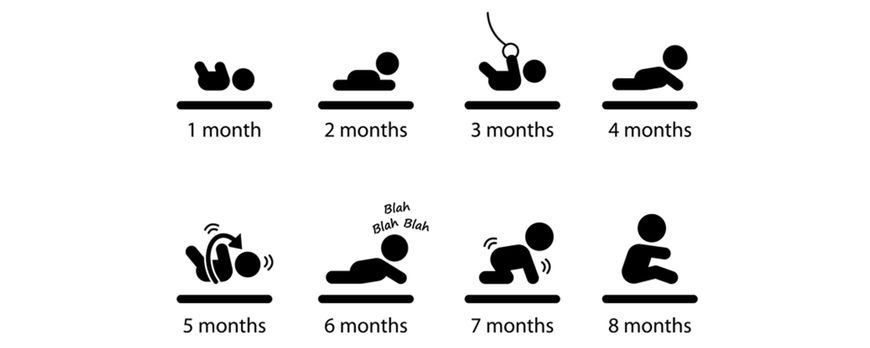Critical Developmental Milestones You won't want Your Child to Miss

As a parent, there are few things more exciting than watching your little ones learn a new skill. We cheer them on for something as simple as reaching for a toy for the first time all the way to taking those first steps and learning to tie their own shoes. It's hard not to wonder in awe how they go from these little beings with little to no control over their bodies to being able to feed themselves and walk around like nobody's business. And then, of course, it's hard not to worry if our children are meeting these developmental milestones when they're supposed to and if we've done something wrong when a child younger than ours crawls or stands or claps before ours does. To understand the solutions to our worries, we first need to understand a little how it all works.

The brain and the other components of the nervous system are quite possibly the most complex of the entire body. So I'll do my best to break it down into the simplest terms I can. All of our movements, whether voluntary or involuntary, are controlled by specific portions of the brain devoted to motor skills. For coordinated movements, the sensory portions of the brain need to be developed and working with the motor portions as well. And these areas don't come predeveloped obviously or our little newborns would come out grabbing, walking and sticking all those questionable items in their mouths from the get-go. So what causes them to develop? Well, for a long time, scientists thought that it was all based on genes. The average ages that our kiddos start learning these motor skills is so predictable that it seems crazy to assume that it could be anything other than genetic clockwork and those that were slower or quicker to develop just had genes that were taking their sweet time or ready to jump the gun. And to a certain extent, they were right. Our bodies have a set time frame for normal neurological development that facilitates learning our milestone motor skills.
So does that mean we can kick back and relax and just wait for our children's genes and nervous system do all the work? Not quite. Working with our children might not affect how early they develop these skills, but we can affect the how refined and how quickly they develop the quality of motion and function. We can also boost their self-esteem and confidence by helping them achieve success more quickly.

